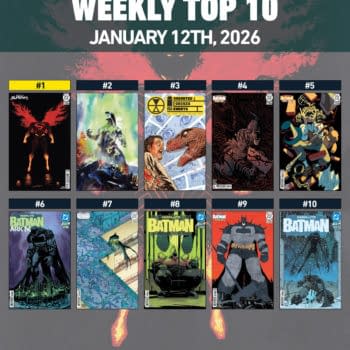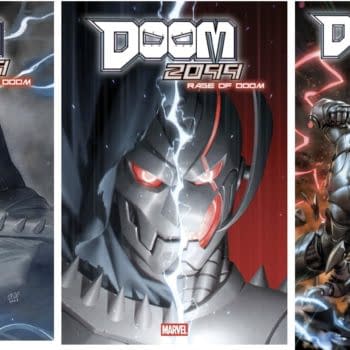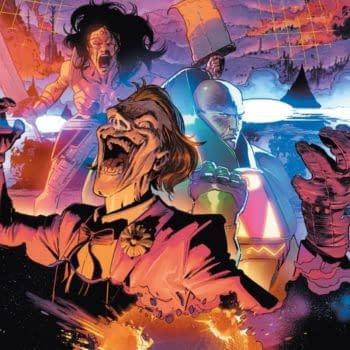Posted in: Recent Updates | Tagged:
Five Act Autopsy by Alisdair Stuart #2: Edge Of Darkness (BBC)

Edge of Darkness is one of those rare pieces that embodies the time it was written in. It's impossible for any form of fiction to not reflect the time it was produced of course, but for me, Edge of Darkness is the first thing I think of when I think of the 1980s. It's John Le Carre in the North of England, a shadowy world of trains with deadly cargo, police officers with negotiable morals and boxes within boxes, conflicts within conflicts that run so deep they appear to touch on primordial civilisation. It's a series that explores how we're trapped by our pasts, how family is both a structure that supports us and restricts us and how, in the end, individual actions are both vital and utterly, crushingly irrelevant.
Those first two ideas are what drives Craven, played here by Bob Peck on career-best form. The journey to the truth about Emma also shows us the truth about Craven, a man whose reticence and soft spoken approach to his life hides an ocean of experience and history. Peck's performance is beautifully pitched, numb and blank following Emma's death but hiding a tremendous intelligence, a fierce analytical mind beneath that. Ronald Craven is an operator in the most literal sense of the word, a man who is so used to hiding most of himself to get other people to reveal the truth he can't see that's exactly what his daughter is doing. Craven is two men; the dutiful father and the spook, the man for whom loyalty, heritage and even sexuality are tools to be used to get the job done. As a result, he's raised two daughters, the charming, sparky student intellectual and the woman who goes into a nuclear weapons plant, knowing full well she almost certainly won't make it out, the woman who smiles and jokes with her father even as radiation ravages her body. A father, a daughter and their shadows, dancing round one another and never quite touching.
Emma is Craven's ideal, the embodiment of everything he's done right and as a result it's inevitable that she returns to him. He needs to believe what he's doing is right, needs someone solid to balance his mercurial approach to life and no one is more solid, more immutable than the dead. This is one of the areas where the story really excels, the interaction between Craven and Emma's ghost, perceived or real, both ambiguous and far more honest than any other conversation they've had. Emma is strident but compassionate, a figure who is more mother than daughter to her broken father. It's Emma who pushes him along, Emma who steers him towards the truth and Emma who, in the end, Craven sacrifices everything for. Whether or not he should is just one of the questions around the character, especially in the later episodes that imply 'Emma' may be the planet communicating with Craven through the only person he'll listen to. She's an abstraction with an agenda as the story closes, a young woman whose actions have propelled her and her father into the modern equivalent of legend. Each is a tiny part of the machine but each helps build a future which is bleak for humanity but, perhaps, hopeful for the world.
That idea of tiny actions being both irrelevant and vital is also what drives Darius Jedburgh. Played by Joe Don Baker, Jedburgh is Falstaff with an M-16, a CIA 'Energy attache' who provides Craven with some of the answers he needs. Jedburgh is one of TV's great comic monsters, played with a casual, detached charm by Baker for much of the series and responsible for many of it's best moments. The site of him, in full combat gear, clumping back to his hotel room and upending a gold bag filled with grenades, ammunition and, of course, golf clubs, is one such highlight. Another comes when Craven shows him the spring that has appeared on the spot Emma died, Jedburgh quietly quoting the bible even as he begins to accept the reality of what's going on.
For all his assistance, all his presence though, Darius Jedburgh is a man with his own agenda. Unlike the Cravens however, we never see that agenda in full, only hints of it. He's certainly a Company man, certainly interested in damaging the men responsible for the murder of Emma Craven. However, the series hints that Jedburgh's objectives run deeper than that, incorporating old family grudges and a battle between good and evil as old as humanity itself. His motives remain, if not unknown, then certainly obfuscated throughout.
Even Jedburgh is restricted by his past though, and arguably more so than Craven. Jedburgh, in the end, is a soldier, a man who knows how to achieve an objective and has very little idea of what to do once he's reached it. His closing scenes only confirm this as, with his only personal armageddon on the horizon, he finds himself cut loose and ultimately turns back to both the CIA and the past for ways of coping with what he's done. He's a larger than life figure, a man who faces down death and smiles but in the end, that's all he knows how to do and, in the end, that isn't enough.
These three drive the show along as they struggle to get to the bottom of Emma's deeply unusual murder. Each struggles against both their better and worse angels, each fails and as a result each plays a vital role in events which, suddenly, take on global significance. This is where the series' true genius comes into play as the tragedy of the Craven family is placed first in the context of Ronald's past, then as part of an international power play and finally as the catalyst for an event almost too big to comprehend. The Cravens and their interaction with Northmoor, a nuclear weapons plant beneath the Yorkshire Moors that's as illegal as it is overlooked, becomes the pebble before the avalanche as an intelligence older than humanity notices us, decides we're a threat and takes action. The end of the world begins with the death of a young woman, the destruction of her father's sanity and the last mission of a soldier who doesn't know how to be anything else. All of them have the opportunity to turn away, none of them take it and in doing so they change everything, forever.
Edge of Darkness is an intensely complex, literate piece of TV drama that manages to take in detective story, conspiracy thriller, science fiction and character study. It's an intensely angry, frequently very funny piece that explores the consequences of our choices and the unique combination of comfort and horror that comes from finding those choices restricted. It's easily one of the best pieces of TV drama ever made, and was repeated twice within weeks of its initial broadcast due to popular and critical response.
Despite this, it's remained something of a forgotten classic, until now. The original director, Martin Campbell, has returned to helm the big-screen remake, due to arrive later this year. Scripted by William Monahan and Andrew Bovell, it relocates the story to Boston, home of Monahan's Oscar-winning The Departed and judging by the trailer ramps the action up. Whether or not it's a successful adaptation remains to be seen but if nothing else, the time has never been better to re-discover the original series, especially as the UK DVD is so cheap now.
Few western TV shows are better, even fewer are as ambitious and none have ever stayed with me the way Edge of Darkness has. If you're even a little interested in smart TV drama, it's an absolute must.
Next week! Either the return of Doctoring the TARDIS or A Very English Armageddon 2, covering Russell T Davies' other cult science fiction series.
I'll see you then. In the meantime, I'll be at fiveactautopsy@googlemail.com.
Alasdair Stuart











